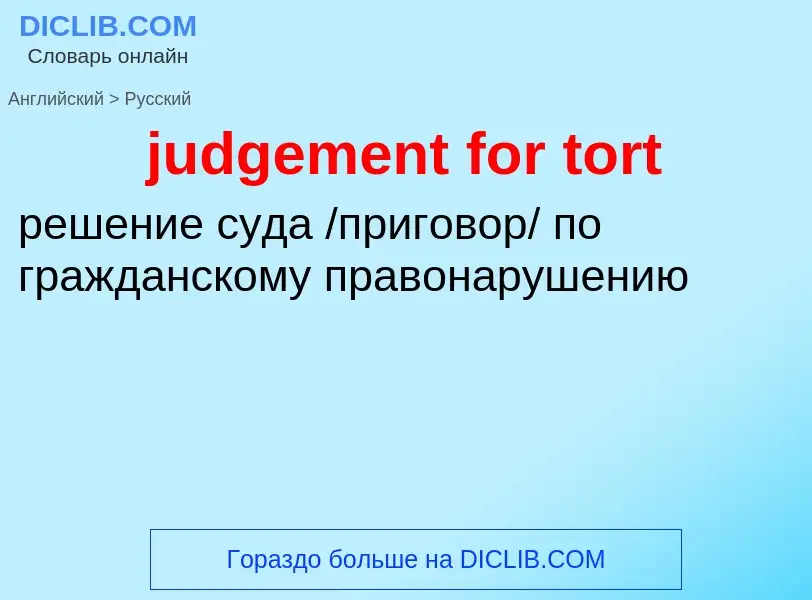Μετάφραση και ανάλυση λέξεων από την τεχνητή νοημοσύνη ChatGPT
Σε αυτήν τη σελίδα μπορείτε να λάβετε μια λεπτομερή ανάλυση μιας λέξης ή μιας φράσης, η οποία δημιουργήθηκε χρησιμοποιώντας το ChatGPT, την καλύτερη τεχνολογία τεχνητής νοημοσύνης μέχρι σήμερα:
- πώς χρησιμοποιείται η λέξη
- συχνότητα χρήσης
- χρησιμοποιείται πιο συχνά στον προφορικό ή γραπτό λόγο
- επιλογές μετάφρασης λέξεων
- παραδείγματα χρήσης (πολλές φράσεις με μετάφραση)
- ετυμολογία
judgement for tort - translation to ρωσικά
['tɔ:tfi:zə]
существительное
юриспруденция
делинквент
Ορισμός
Βικιπαίδεια
At common law, battery is a tort falling under the umbrella term 'Trespass to the person'. Entailing unlawful contact which is directed and intentional, or reckless (or, in Australia, negligently) and voluntarily bringing about a harmful or offensive contact with a person or to something closely associated with them, such as a bag or purse, without legal consent.
Unlike assault, in which the fear of imminent contact may support a civil claim, battery involves an actual contact. The contact can be by one person (the tortfeasor) of another (the victim), with or without a weapon, or the contact may be by an object brought about by the tortfeasor. For example, the intentionally bringing a car into contact with another person, or the intentional striking of a person with a thrown rock, is a battery.
Unlike criminal law, which recognizes degrees of various crimes involving physical contact, there is but a single tort of battery. Lightly flicking a person's ear is battery, as is severely beating someone with a tire iron. Neither is there a separate tort for a battery of a sexual nature. However, a jury hearing a battery case is free to assess higher damages for a battery in which the contact was particularly offensive or harmful.
Since it is practically impossible to avoid physical contact with others during everyday activities, everyone is presumed to consent to a certain amount of physical contact with others, such as when one person unavoidably brushes or bumps against another in a crowded lift, passage or stairway. However, physical contact may not be deemed consented to if the acts that cause harm are prohibited acts.

